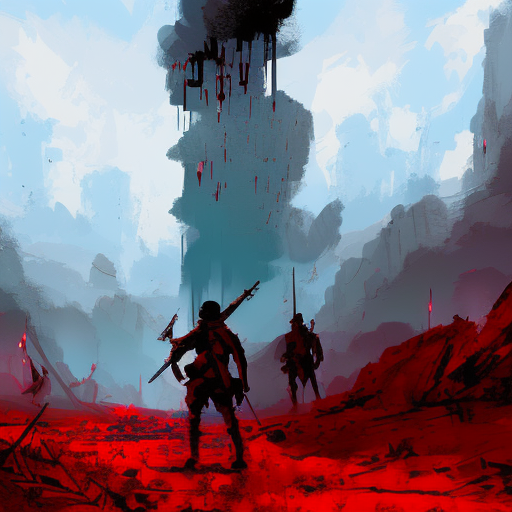Summary:
In “The Red Badge of Courage,” a young soldier named Henry Fleming grapples with fear, courage, and the harsh realities of war during the American Civil War. Through vivid descriptions and introspective musings, author Stephen Crane explores the psychological and emotional journey of a soldier as he navigates the chaos and violence of battle.
The Journey to War
Henry Fleming, a naive and idealistic young man, enlists in the Union Army with dreams of glory and honor. However, as he marches towards the front lines, doubts and fears begin to plague him. He wonders if he will be able to face the horrors of war and if he possesses the necessary courage to fight.
The Reality of Battle
Once engaged in combat, Henry witnesses the brutal and chaotic nature of war. He sees soldiers falling around him, hears the deafening sounds of gunfire, and feels the overwhelming sense of fear. In the midst of battle, Henry’s fear gets the better of him, and he flees from the fight, filled with shame and guilt.
Redemption and Growth
After his initial flight, Henry encounters a group of wounded soldiers returning from the front lines. Their stories of bravery and sacrifice inspire him to rejoin his regiment and face his fears head-on. As the battles rage on, Henry gradually transforms from a fearful youth to a seasoned soldier, gaining confidence and finding his place among his comrades.
Throughout the novel, Crane delves into the complex emotions and psychological struggles that soldiers face in war. He explores themes of courage, cowardice, and the human capacity for change. Crane’s vivid descriptions of battle scenes and his introspective portrayal of Henry’s inner thoughts and conflicts provide readers with a realistic and poignant depiction of war.
Key takeaways from “The Red Badge of Courage” include:
- War is a chaotic and brutal experience that tests the courage and resilience of soldiers.
- Fear and doubt are natural emotions in the face of danger, but true courage lies in overcoming them.
- Redemption and personal growth can be achieved through facing one’s fears and learning from the experiences of others.
As Henry Fleming undergoes his transformation from a fearful youth to a brave soldier, readers are reminded of the complexities of human nature and the power of personal growth. Crane’s exploration of the psychological and emotional impact of war continues to resonate with readers, offering a timeless examination of the human condition.
“He suddenly lost concern for himself, and forgot to look at a menacing fate. He became not a man but a member. He felt that something of which he was a part—a regiment, an army, a cause, or a country—was in a crisis.”
This quote encapsulates Henry’s transformation from a self-centered individual to a soldier who sees himself as part of something greater. It highlights the sense of duty and belonging that emerges in the face of adversity.












